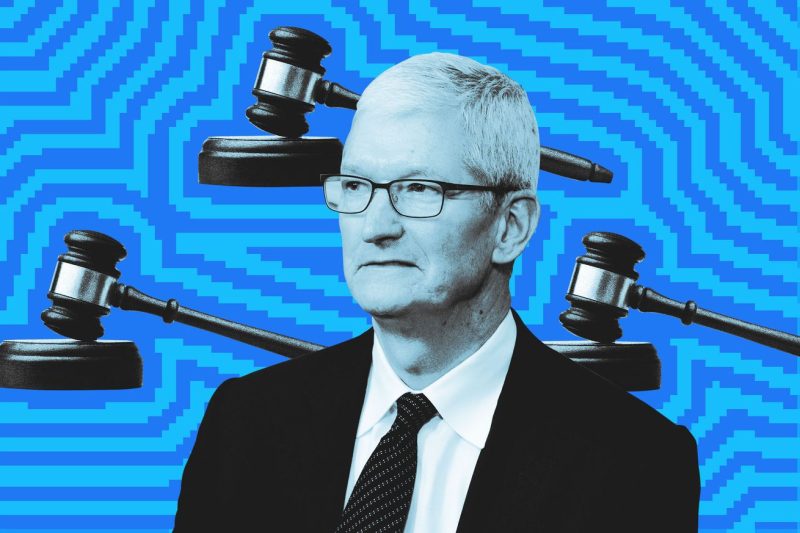In a dramatic legal battle that has captured the attention of the tech world, Apple is firmly defending its position against the Department of Justice’s (DOJ) antitrust lawsuit that threatens to shake the foundations of the tech giant’s App Store ecosystem. The clash between Apple and the DOJ is not merely about legal technicalities but signifies a larger struggle over market power in the digital space and the future of app distribution.
At the heart of the DOJ’s lawsuit lies the allegation that Apple has engaged in anticompetitive behavior by imposing stringent rules and fees on developers seeking to distribute their apps through the App Store. The App Store, a cornerstone of Apple’s business model, is not only a key revenue stream but also a strategic stronghold that the company has fiercely protected. However, critics argue that Apple’s strict control over the App Store stifles competition and innovation, hindering the growth of smaller developers and limiting consumer choice.
Apple’s response to the DOJ’s lawsuit has been robust, with the tech giant mobilizing a formidable legal team and mounting a vigorous defense. Central to Apple’s argument is the assertion that its App Store policies are necessary to maintain a secure and user-friendly platform for developers and consumers alike. By curating the App Store and vetting apps for quality and security, Apple contends that it is safeguarding the integrity of its ecosystem and protecting users from potential threats such as malware and privacy breaches.
Moreover, Apple has emphasized the economic opportunities that the App Store offers to developers, highlighting the billions of dollars in revenue that have flowed to app creators through the platform. The company argues that its fees are justified by the value it provides in terms of reach, visibility, and infrastructure support, enabling developers to access a global audience and monetize their creations effectively.
As the legal battle between Apple and the DOJ intensifies, the outcome of this clash will have far-reaching implications for the tech industry and the broader digital economy. If the DOJ’s antitrust lawsuit proceeds to trial and Apple is found guilty of anticompetitive practices, it could compel the tech giant to reevaluate its App Store policies and potentially open the door to greater competition and choice in the app ecosystem.
On the other hand, if Apple successfully defends its position and the lawsuit is dismissed, it would reaffirm the company’s dominant position in the market and signal that the tech giant’s approach to app distribution is legal and legitimate. Regardless of the final verdict, the legal battle between Apple and the DOJ underscores the complexities and tensions inherent in the digital economy, where questions of market power, competition, and consumer welfare are increasingly intertwined with technology and innovation.
